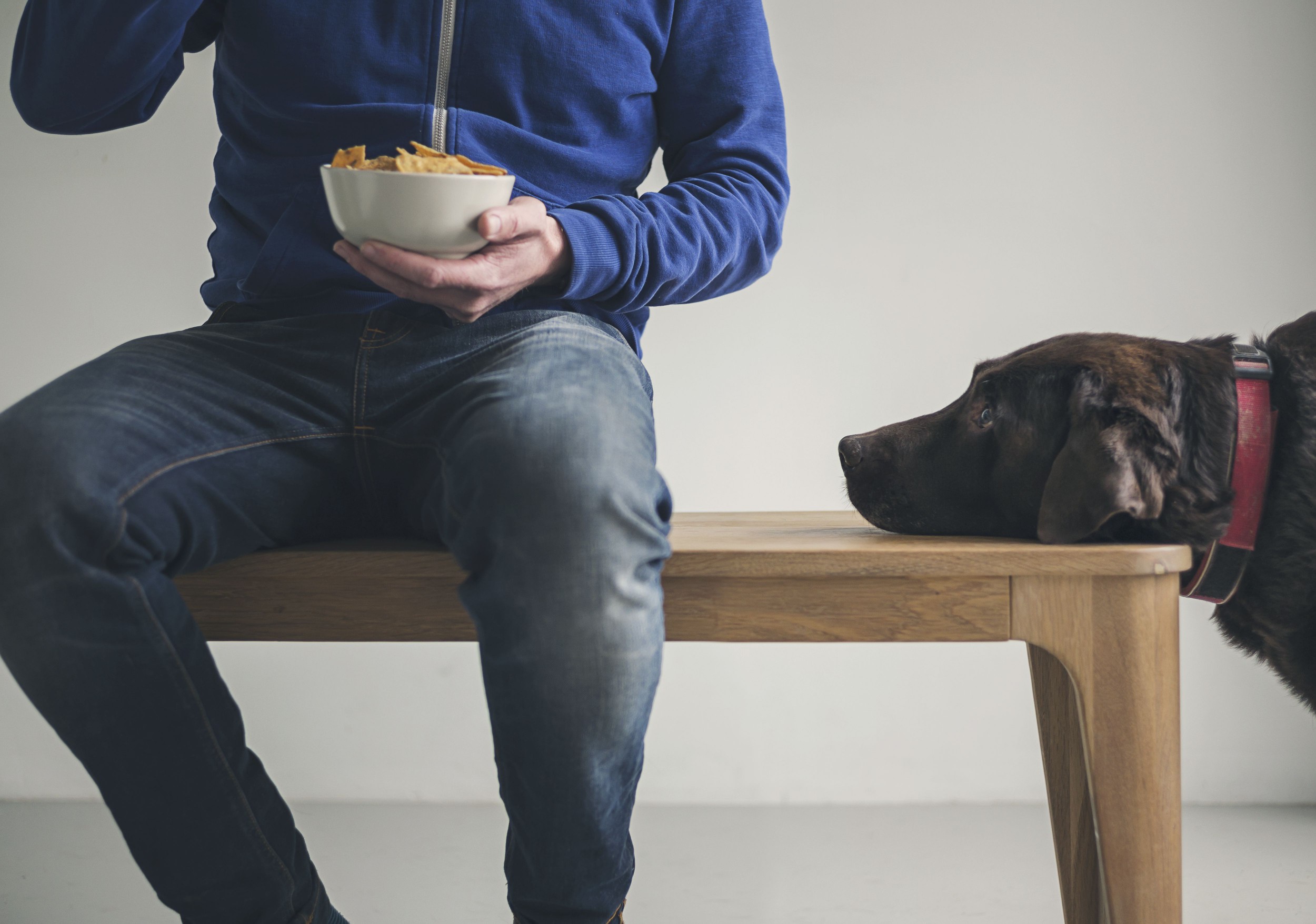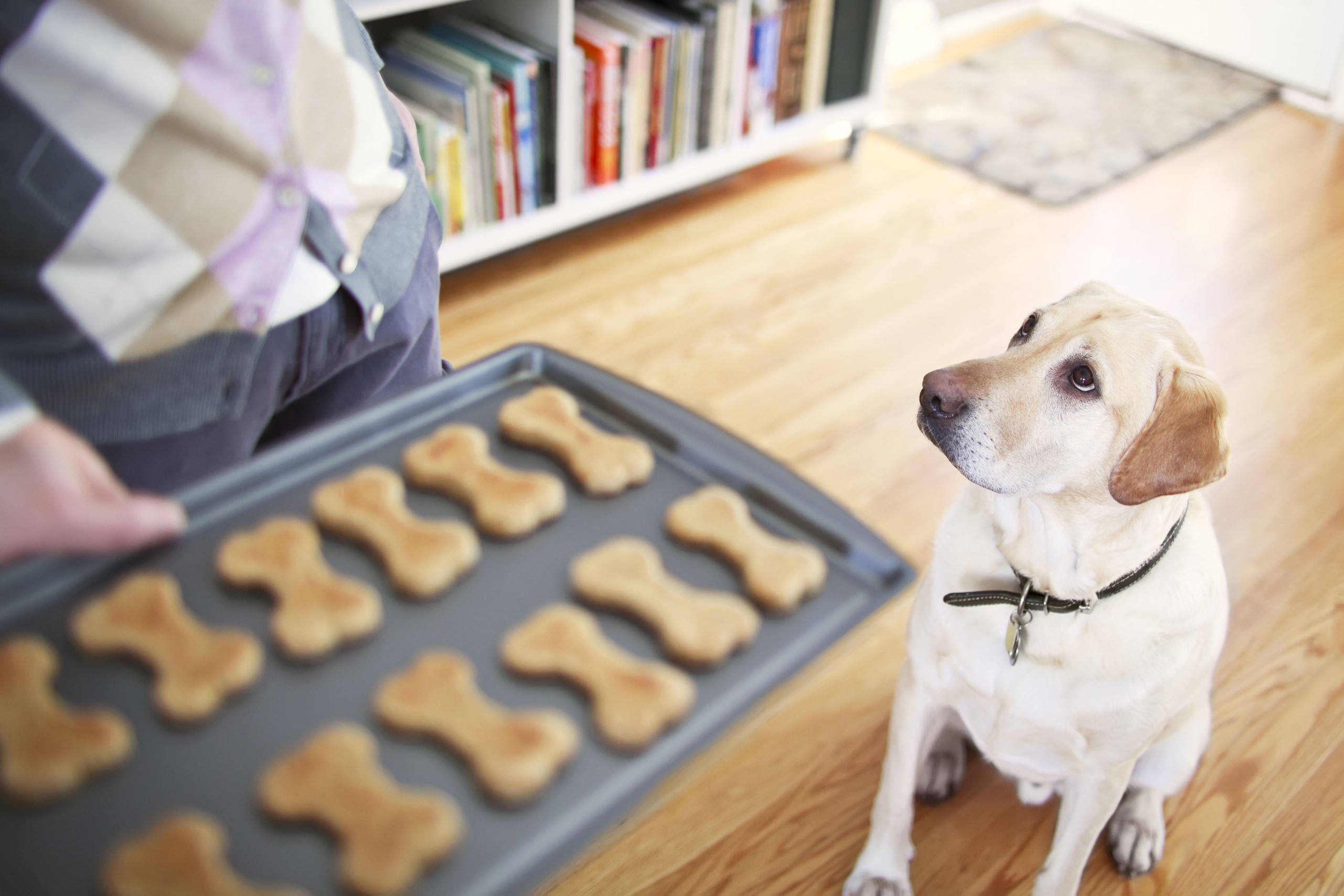While it may seem like your dog is whining for no reason, he is trying to tell you something. Like barking and growling, whining is a way for dogs to vocalize their desires, excitement, pain, stress, and everything in between. The question of whether or not you should respond to a whining dog depends on the underlying reason. Rewarding the whining by giving your pup treats or attention could encourage the whining, resulting in a pup that whines excessively. There are a few things you can do to interpret the whining, calm the dog, and maybe even stop the behavior.
Why is My Dog Whining?
Whining is especially common in puppies because they're learning how to communicate their needs and wants. Young puppies whine to get attention and food from their mother in the same way that babies cry.
It’s often fairly obvious why a dog is whining. It may be begging for a treat from your plate or asking to be let in or out of the house. At other times, the whining may not be so easy to decipher. In these instances, look at the body language that accompanies the dog whining to figure it out. There are a few common reasons why dogs whine, although they may sometimes overlap.
Asking for Something
If your dog wants something from you, like a walk, food, or a toy, it may whine in an effort to tell you. You may even notice its eyes shifting between you and the door or other desired object while it's whining.

Seeking Attention
Attention-seeking whining may occur if you're doing something that doesn't involve your dog, like having a phone conversation with someone or focusing on an important task. It may also happen when your dog becomes jealous of the time you're spending with another person or pet.
Communicating Excitement
If your dog is excited, whining may be part of its way of burning energy and may be accompanied by jumping up and down and running around. Part of this type of whining may also be about seeking attention.
Showing Boredom
Boredom whining often comes across as a "woe is me" sigh-and-whine combo. The dog whines out of boredom and may also be trying to get your attention.
Expressing Pain or Discomfort
Many dogs whine if they're sick or in pain. If your dog isn't feeling well, whining may be its way of getting your attention to let you know. In some cases, the whining could be an effort on the dog's part to calm itself down rather than to get attention.
If your dog is whining a lot and you've eliminated other reasons, a visit to the vet is in order to rule out medical issues before you dismiss the whining as a behavior problem.
Indicating Stress
It's common for a dog to whine when it's anxious or afraid. This type of whining is often accompanied by appeasement gestures, like yawning, lip licking, or averting the eyes. You may also notice a whine and yawn occurring together.
By displaying appeasement gestures, the dog is trying to calm itself down and send a signal to others that it's not a threat. Whining due to stress is often accompanied by other signs of fear such as cowering, flattened ears, and a tucked tail.

Tim Graham / Getty Images
How to Stop Dog Whining
If your dog is whining excessively, it's best to try and learn the reason before you try to address the behavior. Some people don't mind a little whining now and then, whereas others can barely tolerate it and consider any amount of whining to be excessive and annoying. The good news is that you can train your dog to whine less—or perhaps not to whine at all.
- Pay close attention to the sound of your dog's whining and any other behaviors that accompany it. Over time, you may notice different pitches and volumes of whines for different reasons. For example, you may become familiar with the "I want something" and "I'm bored" whines. Then, when you hear a distinctly different whine, this may help you to determine that the cause is actually stress or pain, for example.
- Approach your dog carefully and handle it gently if the whining seems to be due to stress or pain. If so, the whining can escalate and even develop into aggression.
- Look at the situation objectively and go through the potential reasons for the whining before you decide how to proceed. Never punish or yell at your dog for whining as this may make a fearful or anxious dog become even more so and can lead to aggressive behavior.
- If your dog seems fearful, anxious, or otherwise stressed out, try to find the source of the problem. Many fears and phobias can affect dogs. If you're able to determine the reason, you may be able to work on training and desensitizing your dog to overcome its fear.
- Give your dog what it wants under certain circumstances. For example, if your dog is whining to go outside for a potty break, it's better to leash it up or let it out rather than reinforce indoor elimination behaviors.
- Avoid unintentionally encouraging your dog to whine. If you're quite certain your dog wants something like attention or food, redirect it to another behavior before giving in. Ideally, get your dog to quietly sit or lie down; then reward it with attention and praise or a treat.
- Don't give in immediately to your dog's "want," as this actually trains it to whine about everything. This is the most common cause of problem whining. Yes, it's really hard to resist your whining puppy, but if you give in to that cute puppy every time, you could end up with a whiny adult.
- Enrich their environment. Make sure they have plenty of toys, and get plenty of exercise. A dog with pent up physical or emotional energy is more likely to whine.
- Respond selectively to your dog's whining. If you're sure there's no real need, it's best to ignore it. Once you notice a moment of silence, offer praise, a treat, or a similar reward. You can even take this opportunity to work on the "quiet" command.

In most cases, you can manage excessive whining with basic training, mental stimulation, and exercise. When the behavior is seriously resistant to change, you may need to bring in a trainer or behaviorist for extra help. Be patient and consistent no matter what, though, and you're more likely to see your desired results. You may not be able to completely rid your dog of the habit of whining, but you should at least be able to decrease it to a more tolerable level.
Comment